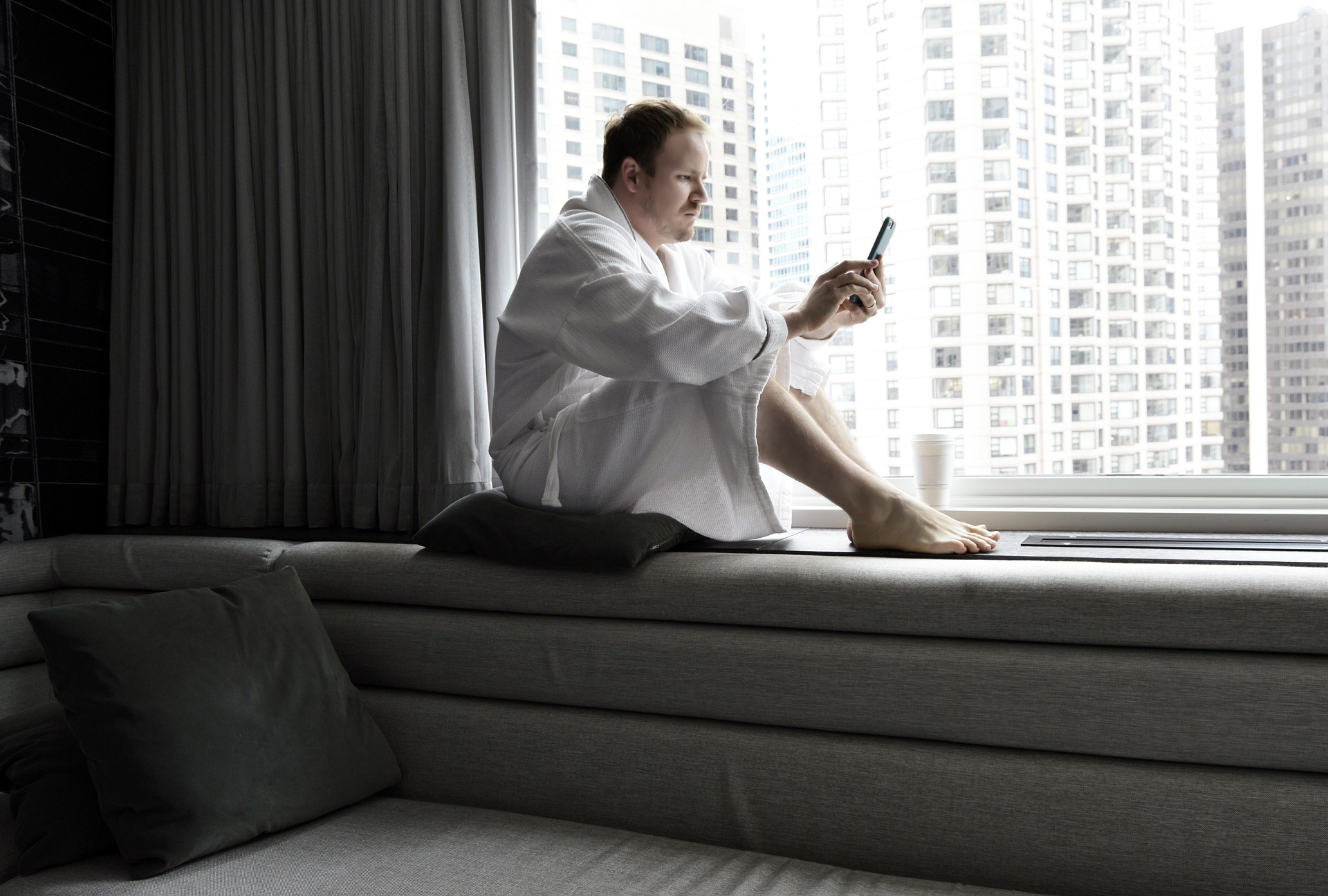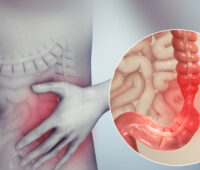
Dr. David Samadi provides tips for men to successfully manage Benign Prostatic Hyperplasia
Prostate issues are common among American men, especially as they advance in age. In fact, it’s been estimated that approximately half of all men between the ages of 51 and 60 suffer from the effects of an enlarged prostate or related issues. The risk of developing this condition increases sharply with advancing age. This is evident by the fact that over 90% of men aged 80 and up are affected by an enlarged prostate. An enlarged prostate, although considered a benign condition, can create many bothersome complaints that affect several aspects of a man’s life. The information below explains what benign prostatic hyperplasia is, what symptoms accompany this illness, and what can be done to manage this common age-related condition.
What is Benign Prostatic Hyperplasia?
Benign prostatic hyperplasia refers to a condition in which the prostate gland becomes abnormally enlarged. BPH is the most common cause of prostate enlargement in American men. Just because the condition is described as benign, however, doesn’t mean that it isn’t troubling and difficult to manage.
Dr. David Samadi, a world-renowned prostate surgeon and member of the American Urologic Association, explains the prostate undergoes two important stages of growth during a man’s lifetime. According to Dr. Samadi, the prostate experiences the greatest degree of growth during puberty. However, it begins to grow again around the age of 25. This subsequent period of growth is entirely normal and remains what is known as benign prostatic hyperplasia. It is vital to understand that BPH is not prostate cancer and does not turn into cancer. However, it can create bothersome symptoms that are irritating to the men affected by this condition.
Common Symptoms of BPH
Dr. David Samadi has performed well over 7,000 prostate surgeries, a feat that has earned him recognition as one of the top prostate surgeons in the world. Dr. David Samadi mentions that there are several distinct signs of benign prostatic hyperplasia that can be displayed by men affected by the condition. The most common symptoms displayed in those with BPH are described in more detail below.
Producing a Weak Stream of Urine
Men with benign prostatic hyperplasia may display a weak stream of urine when they visit the bathroom. Rather than coming out in a steady stream, they may find that their urine dribbles out more slowly or inconsistently.
Inability to Produce a Steady Stream of Urine
Under normal circumstances, once the flow of urine begins, it doesn’t stop until the bladder is completely emptied. Men with BPH also frequently experience the need to stop and start their flow of urine.
Urgency with Urination
Men with BPH often describe a great urgency associated with urination. Healthy men and women can hold their bladder for a period of time until a proper bathroom can be found. It can be difficult or even painful for a man with benign prostatic hyperplasia to hold his urine.
Leaking Urine between Bathroom Visits
Dribbling or leaking urine in between visits to the bathroom is a particularly common and disturbing symptom mentioned among men with BPH. It may be a very small amount that consistently leaks or enough to show through the clothing, resulting in discomfort and embarrassment.
Frequent Urination
Men with benign prostatic hyperplasia often need to urinate much more frequently than what would be considered normal. This can be especially bothersome at night when the individual is trying to get adequate sleep.
Feeling of Incomplete Bladder Emptying
Last but not least, men with BPH may feel that their bladder is not entirely empty even after urinating a number of times throughout the day. A sense of pressure can remain present no matter how many times the man visits the bathroom in an attempt to fully empty his bladder.
DR. SAMADI: 3 simple ways to prevent prostate problems https://t.co/gBg3HG6B3G
— Dr. David Samadi (@drdavidsamadi) January 12, 2018
Seven Lifestyle Enhancements for Effectively Managing Benign Prostatic Hyperplasia
According to Dr. David Samadi, BPH is one of the most frequent reasons that men over the age of 50 visit him for medical assistance. Dr. Samadi, who earned his Biochemistry degree from the State University of New York at Stony Brook, states that there are at least seven well-known lifestyle changes that can help manage BPH successfully. Dr. Samadi explains these lifestyle enhancements in more detail below.
Relief of Excess Stress and Tension
Dr. David Samadi explains that tension and stress can create an artificial urge to urinate, even when there isn’t much urine present in the bladder. Learning proper relaxation techniques such as yoga and meditation can cut down on this bothersome effect experienced by so many men with BPH.
Make Double Voiding Standard Practice
BPH can make a man feel like he needs to urinate more frequently than normal. It can also create the feeling that the bladder has not been adequately emptied, but this is many times a false sensation. Double voiding can help cut down on overly frequent bathroom visits. Double voiding simply refers to the act of waiting at least half a minute after the man thinks he is finished urinating to be sure he is completely done.
Monitor Medications
Many types of prescription and over-the-counter medications can affect the way BPH symptoms are manifested. Many types of decongestants, diuretics, and antihistamines can affect this condition. Men are encouraged to disclose all over-the-counter medication use to their doctors to allow them to formulate a plan to reduce medication-related effects on BPH.
Have a Cutoff Time for Liquids
Dr. David Samadi has broached the subject of prostate and bladder care with thousands of patients. He encourages his patients to stop consuming liquids at least three hours before bedtime to allow for more restful sleep and fewer nighttime visits to the restroom.
Don’t Neglect Kegel Exercises
Dr. David Samadi also reports to his patients that Kegel exercises are not just for women. Both men and women can experience benefits from strengthening the muscles associated with the pelvic floor. Men who perform Kegel exercises regularly can cut down on both urgency and frequency issues relating to urination problems.
A Healthy Diet is Vital
Consuming a healthy diet is one of the best things that men suffering from the effects of benign prostatic hyperplasia can do for themselves. A diet rich in fruits, vegetables, whole grains, legumes, and fish can do much to improve a man’s overall health. Furthermore, this diet can improve symptoms associated with BPH.
Prompt Medical Care is Essential
Dr. David Samadi attends to the medical needs of thousands of patients every year. He addresses their immediate concerns regarding their prostate health and any symptoms they are experiencing. However, he also helps them create effective strategies for improving their health in the long run. As a result, Dr. Samadi stresses the importance of regular medical care to maintain health and cut down on the risk of future disease.
Dr. David Samadi is a world-renowned robotic prostate surgeon and specialist in the field of urology. Obtaining his high school diploma in Roslyn, New York, he then went on to attend the State University of New York at Stony Brook for his Biochemistry degree. Dr. Samadi’s experience and expertise in the field of robotic surgery has earned him the title of one of the best prostate surgeons in the world. Today, he remains Chairman of Urology and Chief of Robotic Surgery at Lenox Hill Hospital, where he continues to positively impact the lives of thousands of patients every year.
Related Article: Prostate Cancer Rates May Increase By 220 Percent By 2020














Leave a Reply
Be the First to Comment!
You must be logged in to post a comment.
You must be logged in to post a comment.